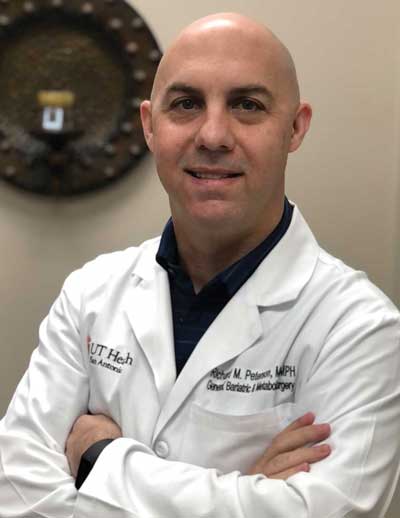Farewell and Thank You!

Richard M. Peterson, MD, MPH, FACS, FASMBS, DABS-FPMBS, is the Co-clinical Editor of Bariatric Times; Professor of Surgery, UT Health San Antonio; Chief, Bariatric and Metabolic Surgery UT Health San Antonio, San Antonio, Texas.
Dear Colleagues,
As I sat down to write my last editorial for Bariatric Times, I took some time to reflect on this short but incredible journey. I wrote my first editorial in February 2022, and so much has changed in this short time. Even though the single anastomosis duodenolileal bypass with sleeve (SADI-S) had been approved by the American Society for Metabolic and Bariatric Surgery (ASMBS) in November 2019, at that time, it was still considered experimental by nearly all insurances. Now, we are seeing several of the big payors begin to cover the operation. It’s still a work in progress, but times are changing.
And change is a good thing; it can be hard to embrace at first, but can lead to something better. The new ASMBS/International Federation for the Surgery of Obesity and Metabolic Disorders (IFSO) guidelines for bariatric and metabolic surgery were updated and released; it was a long time coming to move the needle that was created some 30 years ago. Congratulations to all our society members who made that possible. I am seeing insurers in our area changing/following the new criteria more regularly.
Medication use for obesity has skyrocketed. Many news outlets were touting that medications would eliminate the need for surgery, but we all can likely agree that medications, like surgery, aren’t for everyone. I think that with the introduction of these medications, awareness of the chronic disease of obesity has been raised. Being able to work with our colleagues with medication as an adjunct/partner to surgery is making an even bigger impact on obesity.
Earlier this month, Eli Lilly announced the news of a new weight loss medication that is expected to be more popular than those that have come before it, for immediate release. While surgical practices might take a hit to volumes at first, surgery remains. In my own institution health system, which is a self-insured plan, use of glucagon-like peptide-1 (GLP-1) receptor agonists for weight loss was excluded at the start of our fiscal year because the cost to the system was going to exceed $20 million. I know of other systems around the country that have had to do the same. In our system, we are starting to see a slow influx of patients who might not have come to see us before because the medications raised their awareness of this disease, and they now see surgery as a viable option.
One of the things that I will miss most about Bariatric Times is that it was a place where the entirety of our discipline was represented. Surgeons, obesity medicine physicians, nurses, dietitians, advanced practice providers, psychologists, psychiatrists, exercise specialists, and patients all found a voice. In addition, academia, private practice, community, and employed practices all had a place to share and be heard.
First, I want to thank my co-editor, Dr. Jenny Seger. It has been a pleasure serving in this capacity with her and being able to work together to be a part of this publication. I also want to thank Dr. Raul Rosenthal, the founding editor of Bariatric Times and the person who encouraged me to take on this role. I also want to thank Dr. John Morton, who graciously helped me transition into this role. I want to thank each of our column editors who tirelessly put together content each and every month. Of course, I want to thank all the editorial team at Bariatric Times that made sure I stayed on time and on track to get my editorials and work in and even gave me “extensions” when needed. And last, but certainly not least, I want to thank you, the readership of Bariatric Times.
Sincerely,
Rich Peterson, MD, MPH, FACS, FASMBS
Category: Current Issue, Editorial Message




